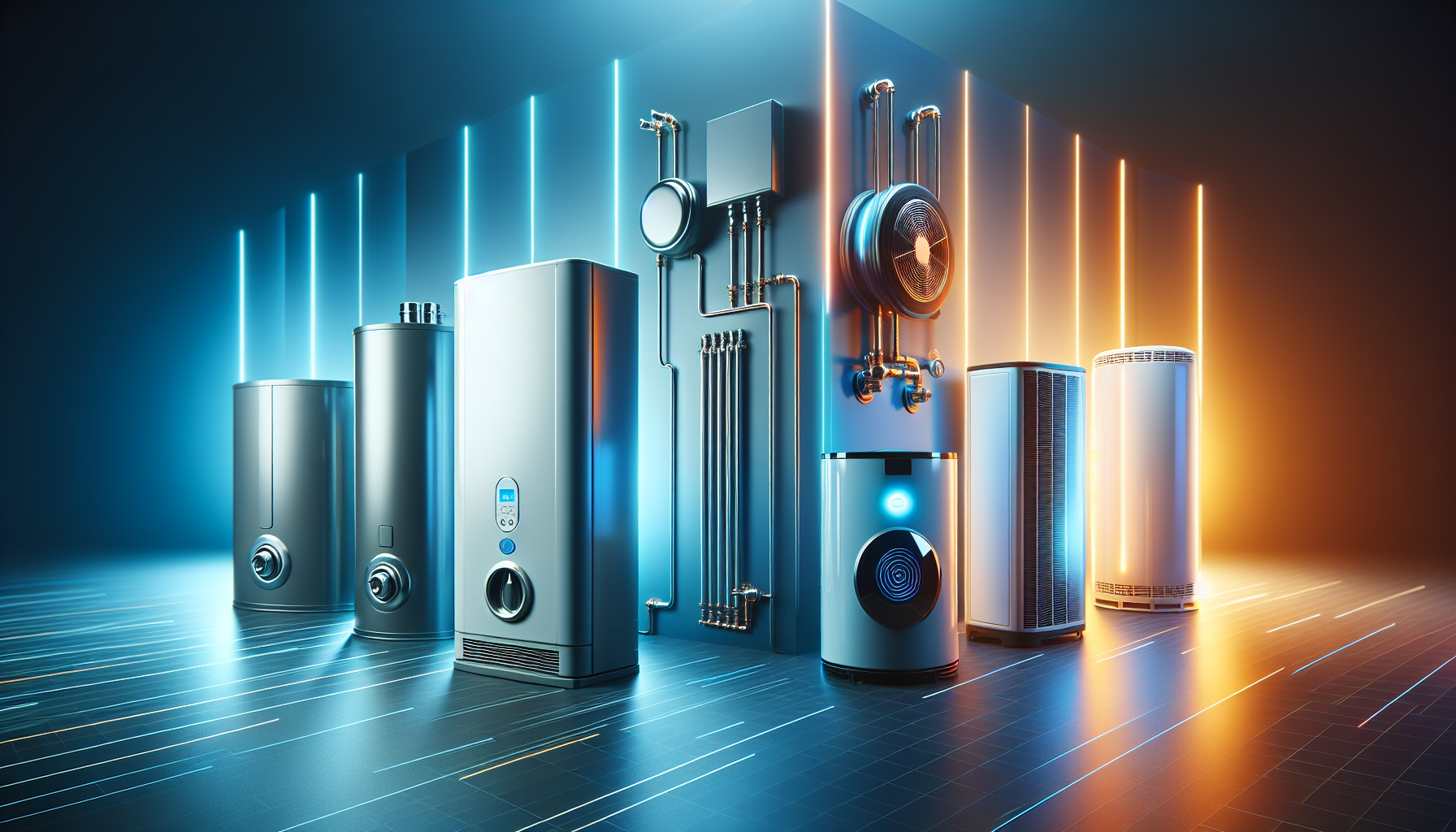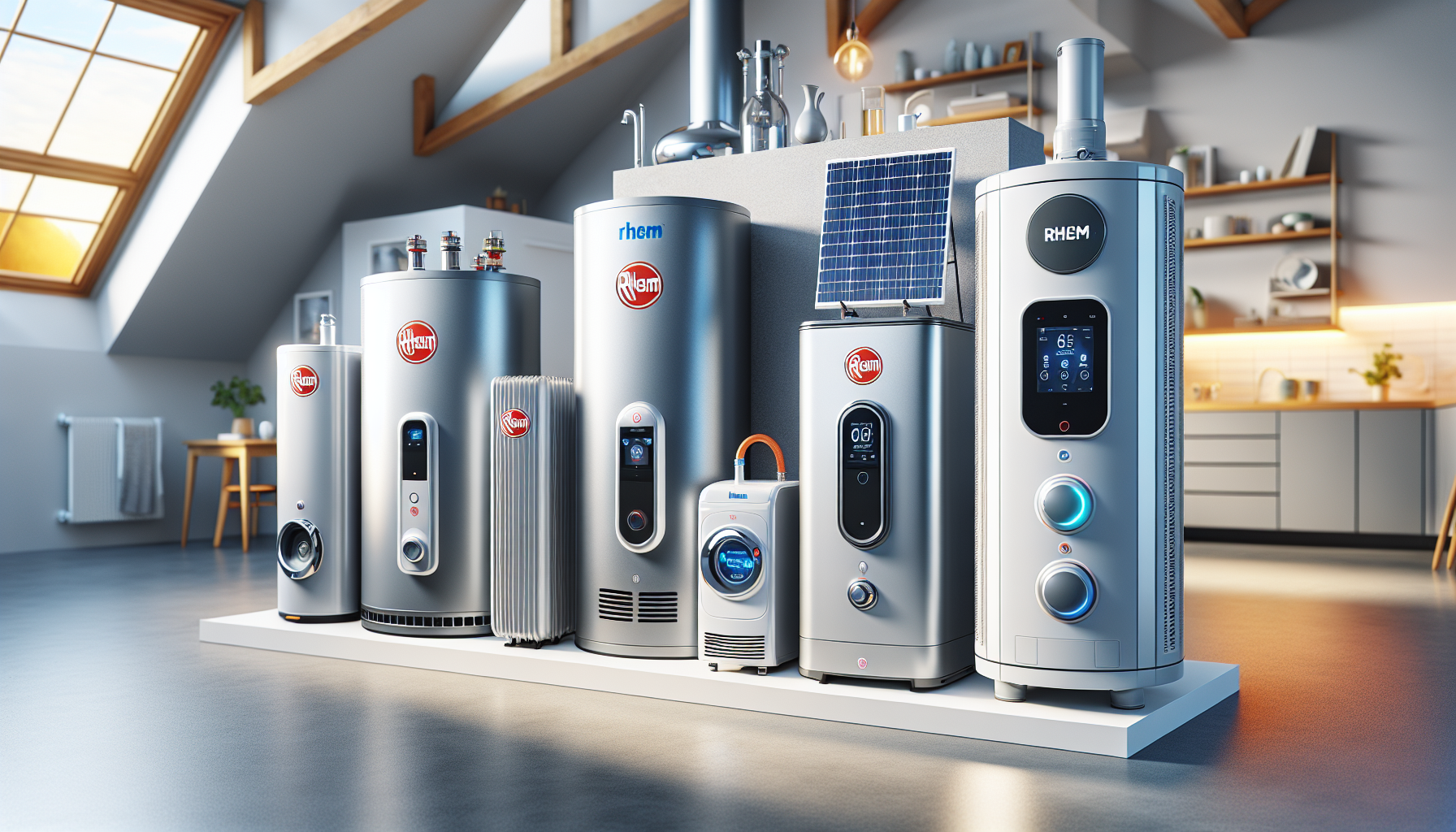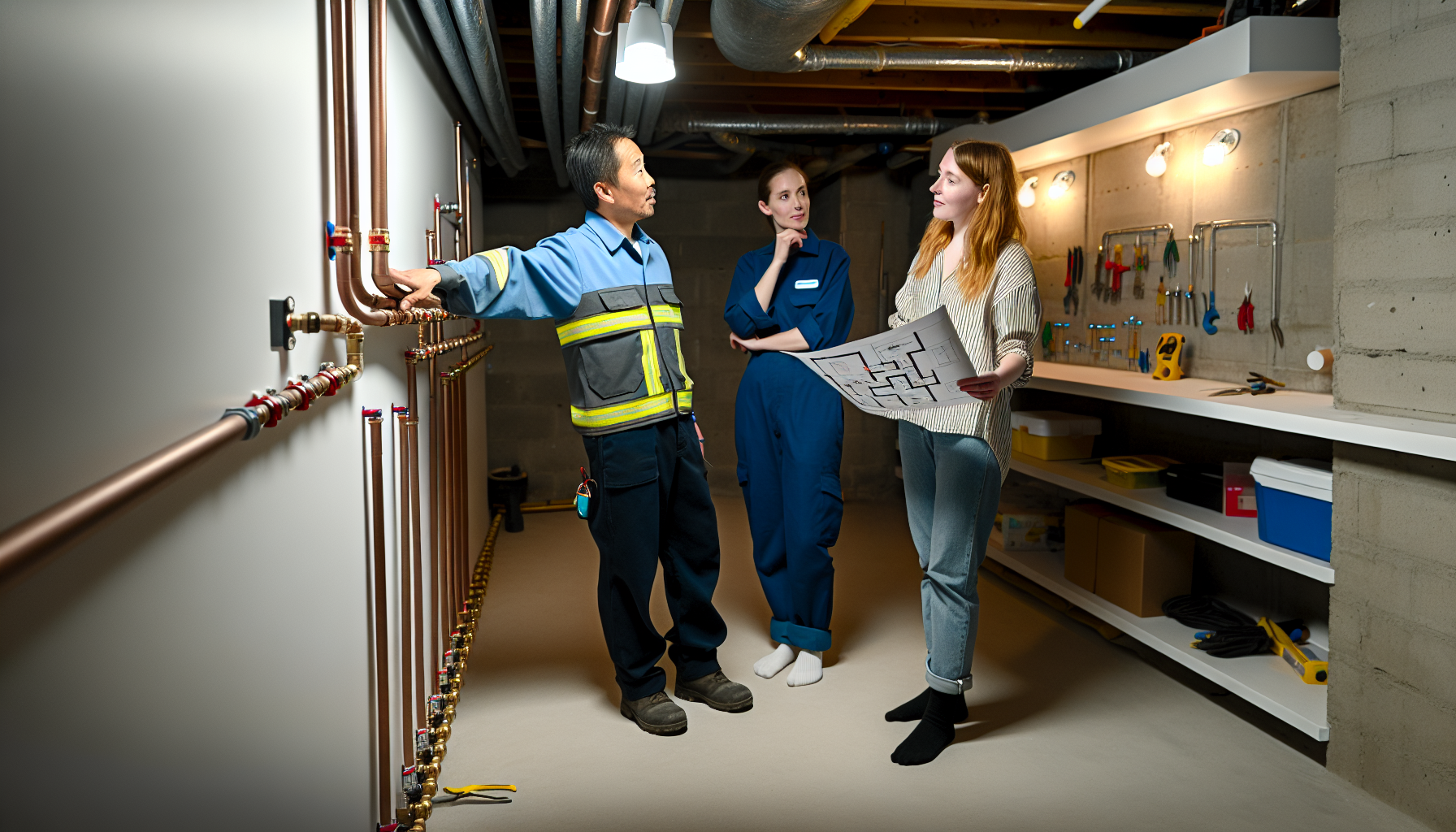Budget-Friendly Hot Water Solutions: Find Your Ideal Cheap Hot Water System
If you’re in the market for a cheap hot water system, pinpointing the right choice can be straightforward. Our guide cuts through the complexity, highlighting cost-effective models and how to choose a system that provides reliable hot water while keeping your budget in check.
Key Takeaways
-
Electric hot water systems are the most affordable upfront but have higher running costs, which can be offset by using off-peak tariffs; gas systems offer lower operating costs and fewer emissions, and heat pump systems are energy-efficient and cost-effective over the long term despite higher initial prices.
-
When selecting a hot water system, it’s important to consider factors such as household size, hot water demand, energy efficiency ratings, running costs, and potential rebates and incentives to ensure cost-effectiveness and meet specific needs.
-
Top budget-friendly hot water system brands such as Rheem, AquaMax, and Thermann offer a range of products known for quality and energy efficiency, with incentives and proper installation enhancing long-term savings and system performance.
Affordable Hot Water System Options

Whether it’s a chilly morning shower with cold water or a pile of dirty dishes, hot water is a necessity in any home. But, did you know that not all hot water systems are created equal? That’s right! From electric hot water systems to gas and heat pump systems, each type has its unique pros and cons. The key to choosing the right hot water system lies in understanding these differences and aligning them with your household needs and budget. We will now delve into the specifics of each system.
Electric Hot Water Systems
Electric hot water systems have a reputation for being the budget-friendly choice. With prices ranging from $400 to $2,000, these systems cater to a wide range of budgets. They come in two types: storage and continuous flow models. Storage models heat a large volume of water and store it for use throughout the day. On the other hand, continuous flow models, also known as electric instantaneous water heaters, heat water only when needed, making them ideal for smaller demands. The heating method involves an electric element coiled around the pipes or at the base of the water tank, ensuring an efficient transfer of heat.
Despite their low upfront costs, bear in mind that electric hot water systems might have higher running costs due to electricity prices. However, with smart utilisation, such as using off-peak electricity tariffs, these costs can be significantly reduced.
Gas Hot Water Systems
If you’re looking for a new hot water system that balances upfront costs with eco-friendliness, gas hot water systems and solar hot water system might be the answer. These systems offer:
-
Lower running costs compared to electric systems
-
Fewer greenhouse gas emissions
-
Quick heat recovery time
-
Suitable for large households
While upfront costs for gas hot water systems range between $750 and $1900, it’s worth noting that they may incur higher installation and maintenance costs. However, the long-term savings in energy bills can offset these initial costs. One popular choice is the continuous gas hot water systems, which heat water on-demand using a gas burner, eliminating the need for bulky storage tanks.
Heat Pump Hot Water Systems
Heat pump hot water systems may have higher upfront costs ranging from $2200 to $6800, but their long-term cost savings and high energy efficiency make them a worthy investment. Heat pumps work by extracting heat from the surrounding air, reducing the amount of electricity needed to heat the water. This process can achieve over 300% efficiency levels, significantly reducing running costs.
Apart from the cost savings, heat pumps are known for their long lifespan, lasting up to 20 years or more with only annual servicing required. Some models, such as the iStore 270L Heat Pump, offer an efficient and budget-friendly solution for heating water using ambient air.
Factors to Consider When Choosing a Cheap Hot Water System
While cost is a crucial factor when choosing a hot water system, it’s not the only aspect to consider. Factors to consider include:
-
Household size
-
Hot water demand
-
Energy efficiency
-
Running costs
All of these factors play a significant role in determining the best hot water system for your needs.
Next, we will explore these factors in detail, giving you a comprehensive understanding that will assist your decision-making process.
Household Size and Hot Water Demand
The size of your household and hot water demand directly influences the capacity of your hot water system. For instance, a four-person household typically requires a 125–160L tank for a continuous rate system or 250–315L for off-peak. As for gas hot water systems, a tank of about 135–170L or an instantaneous system would be ideal.
Small households may prefer continuous flow systems due to their cost-effectiveness. On the other hand, medium to large households might opt for storage tank systems due to their ability to meet higher hot water demand. Ultimately, choosing the right-sized hot water system is crucial for maximizing cost-effectiveness and preventing unnecessary energy expenditure.
Energy Efficiency Ratings
Energy efficiency ratings are a crucial factor to consider when choosing a hot water system. These ratings, which are integral for determining the cost-effectiveness and environmental impact of hot water systems, aid consumers in comparing different systems for long-term savings and sustainability.
For instance, continuous flow electric hot water systems can achieve energy ratings up to 6 or 7 stars, while gas storage hot water systems are more energy-efficient when using 4 or 5-star units. On the other hand, heat pumps, known for reducing carbon emissions by using external air temperature, can reach over 300% efficiency levels, significantly reducing running costs, especially when paired with solar panels.
Running Costs and Maintenance
The running costs of hot water systems include the energy consumed to heat the water and any regular maintenance that might be needed. Electric hot water systems, while cheap to install, have higher operational costs, particularly if they’re using a continuous full-day rate, making them the most expensive to run with high greenhouse gas emissions. In contrast, gas hot water systems offer lower running costs and lower carbon emissions.
When it comes to maintenance, different hot water systems have varying requirements. For example, heat pumps generally require less frequent professional checks, while other systems might require annual maintenance. To ensure optimal performance, especially in cold weather, heat pumps may need upgrades to mitigate potential damage to internal components.
Rebates and Incentives
Rebates and incentives can significantly reduce the initial costs of installing energy-efficient hot water systems. Such financial incentives include government rebates and schemes like the Small-scale Renewable Energy Scheme. Specific examples of local government rebates include the ACT Government’s offer of $750 off the purchase price of a new hot water heat pump.
Eligibility for these benefits may depend on various factors, including income level, concession card holder status, and hot water system type. To find available rebates and incentives, households can use tools on websites like energy.gov.au.
Top Budget-Friendly Hot Water System Brands

When it comes to choosing a budget-friendly hot water system, the brand matters. Renowned brands like Rheem, AquaMax, and Thermann not only offer a wide range of options but also ensure superior quality and durability.
We will now examine what these top brands have to offer in more detail.
Rheem
Rheem, a household name in water heaters, offers a diverse range of products including:
-
Electric water heaters
-
Gas continuous flow water heaters
-
Heat pump water heaters
-
Solar water heaters
-
Gas storage water heaters
Rheem is known for popular models like the Rheem 315 Stellar Electric and Rheem Metro 26 Gas Instant system, which are recognized for their ease of installation, cost-effectiveness, and suitability for large households.
Rheem’s hot water systems deliver an exceptional user experience with features such as a dependable hot water supply, safety mechanisms, and 5-Star energy efficiency. If you’re looking for a trustworthy and efficient hot water system, Rheem is a brand you can rely on.
AquaMax
AquaMax stands out for its highly durable and energy-efficient units. The brand’s gas hot water systems feature marine grade 316 stainless steel cylinders, offering longevity and reliability. These systems also boast a 5-star energy rating, ensuring efficient operation and lower running costs.
Designed for high-demand scenarios, AquaMax’s Stainless Steel range ensures a consistent supply of hot water, making it an excellent choice for larger households. If durability and energy efficiency are your top priorities, AquaMax might just be the perfect fit for your home.
Thermann
For dependable performance in continuous flow hot water systems, Thermann is a brand worth considering. The brand’s commitment to supplying high-quality hot water solutions is evident in their diverse range of options, including continuous flow, solar, and storage tanks.
In addition to delivering reliable performance, Thermann hot water systems offer the following benefits:
-
They are easily accessible at Reece Plumbing locations throughout Australia
-
They provide a wide variety of options to choose from
-
They are known for their durability and long lifespan
If you’re looking for a brand that combines performance, variety, and accessibility, Thermann is a solid choice.
Installation Tips for Affordable Hot Water Systems

The installation of an electric hot water system is a crucial step that can significantly affect its efficiency and longevity. While electric hot water systems require a simpler and cheaper installation process, ensuring proper location selection and electrical safety is paramount.
Next, we will impart some useful tips to guide you through the installation process.
Choosing the Right Location
Choosing the right location is crucial for maximizing the efficiency of your hot water system. By positioning the system near the bathroom, laundry, and kitchen, you can minimize heat loss through pipes and enhance system efficiency.
For gas hot water systems, proper placement and ventilation are essential for safety. These gas systems, often utilizing natural gas, require outdoor installation or indoor installation with an exhaust flue to comply with safety regulations. Gas storage systems can be considered as an option for hot water systems, depending on the specific requirements and space availability.
Heat pumps, on the other hand, should be strategically placed away from living spaces to reduce noise disturbance. As for solar collectors, they should be positioned in a north-facing, unshaded area to maximize solar heat gain.
Electrical Connection and Safety
While choosing the right location is crucial, ensuring proper electrical connections and safety is equally important. The installation of a hot water system should always be done by a trained professional to ensure that all safety protocols and standards are met. For electric hot water systems, a licensed electrician is required, especially if additional electrical work such as wiring is needed.
Apart from installing the system, a licensed electrician can also ensure that the installation complies with local electrical codes for safety and performance. It’s also important to maintain minimum clearance from combustible materials and access doors or windows for safety.
Maximizing Efficiency and Reducing Running Costs

Once you’ve chosen and installed your hot water system, the next step is to maximize its efficiency and minimize running costs. By using smart controls, timers, and off-peak tariffs, you can ensure that your system operates at its peak efficiency.
Next, we will delve into these strategies for a more detailed understanding.
Smart Controls and Timers
Smart controls and timers can play a crucial role in reducing energy consumption and costs. For example, you can set electric water heaters to heat primarily during off-peak hours, thus reducing energy costs. Advanced digital water heater timers even allow remote control through wireless technologies and smartphone apps, giving you the power to manage your hot water heating remotely and conveniently.
By scheduling heating only when needed, you can decrease energy consumption by preventing the tank from reheating water due to standby loss. Smart water heaters and digital timers not only save costs but also contribute to environmental sustainability by optimizing energy use.
Off-Peak Tariffs and Water-Saving Habits
Off-peak tariffs and water-saving habits can significantly lower your energy usage and save on utility bills. Here are some ways to achieve this:
-
Use electricity during times of low demand, such as nighttime, to take advantage of off-peak tariffs and lower electricity rates.
-
Insulate your storage tanks to minimize heat loss and ensure hot water availability while benefiting from off-peak tariffs.
-
Practice water-saving habits, such as taking shorter showers, fixing leaks, and using efficient appliances, to reduce overall energy usage and lower utility bills.
By implementing these strategies, you can effectively lower your energy usage and save money on your utility bills.
Adopting water-saving habits can help reduce energy consumption and lower greenhouse gas emissions. Here are some tips:
-
Take shorter showers
-
Repair leaks
-
Install low-flow fixtures
-
Use water heater timers
By implementing these practices, you can save costs and contribute to a more sustainable future.
Summary
Choosing the right hot water system is more than just a matter of cost. It involves considering various factors such as household size, hot water demand, energy efficiency, running costs, and available rebates. Top brands like Rheem, AquaMax, and Thermann offer a wide range of options to cater to different needs. By utilizing smart controls, timers, off-peak tariffs, and water-saving habits, you can maximize efficiency and reduce running costs. Remember, a well-chosen and properly installed hot water system can provide you with a consistent supply of hot water while reducing energy costs and environmental impact.
Frequently Asked Questions
What is the cheapest way to get hot water?
The cheapest way to get hot water is to use solar or slow combustion wood systems, as they are cost-effective and utilize natural resources. These systems are becoming more popular for their affordability and efficiency.
What are the different types of affordable hot water systems?
Affordable hot water systems include electric, gas, and heat pump options, each offering distinct advantages and costs. Consider the best fit for your needs and budget.
How does household size affect the choice of a hot water system?
The size of your household directly impacts the choice of hot water system. Smaller households may find continuous flow systems more cost-effective, while larger households may prefer storage tank systems to meet higher hot water demand.
What are energy efficiency ratings and why are they important?
Energy efficiency ratings are important because they help consumers compare different systems for long-term savings and sustainability, by determining the cost-effectiveness and environmental impact of hot water systems.
What should I consider when installing a hot water system?
When installing a hot water system, consider the right location near key areas, ensure proper electrical connections, and prioritize safety by hiring a licensed electrician for installation. Position the system near the bathroom, laundry, and kitchen to minimize heat loss.























